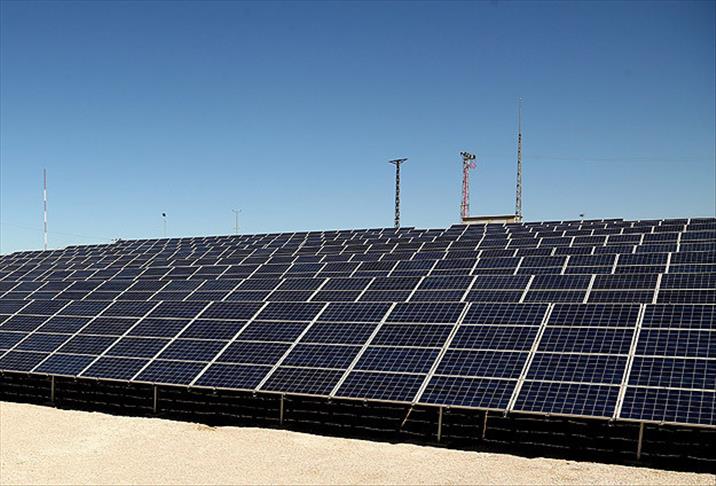Japan building massive offshore solar panels
Japan seeks alternative energy technologies after Fukushima nuclear accident

By Gulsen Cagatay
ANKARA
Japan, still recovering from the after-effects of the 2011 accident at the Fukushima nuclear power plant, has started building offshore solar plants as an alternative source of energy.
When the plants are fully operational, they are expected to produce 60 megawatts of electricity from renewable energy.
The country is constructing an offshore network that will consist of 30 floating two-megawatt power plants. The first part of the network is to be built with a capacity of 1.7 megawatts, and it will be the world's biggest floating solar power plant.
Japan, which now produces 13.5 gigawatts of energy from renewable sources aims to increase that number to 48.8 gigawatts by 2020.
Ahmet Yilanci, a solar energy expert at Ege University Solar Energy Institute in Izmir, said the main reason for locating solar panels offshore is to be able to use the land for other purposes such as agriculture and construction.
"The offshore system works more efficiently," Yilanci said. "Photovoltaic panels are based on crystalline silicon, and that works to balance the temperature of the surface of the panels. When heating increases, efficiency is reduced, but with water-based systems the panel temperature will be reduced when compared to the panels on land. However, materials that are used for offshore panels should be resistant to moisture and corrosion."
Turkey is a large country so it may not be so urgent for the country to use offshore solar panels, Yilanci said. Japan is about half the size of Turkey but has about 50 percent more people.
In Turkey, rooftop and building-integrated solar panels are widely used, especially in the Mediterranean and Aegean regions. It is expected that these solar energy applications will be used in other sunny regions of the country, as well.
After the earthquake that caused the Fukushima disaster, some nuclear stations in Japan were closed. Following the disaster, in order to meet growing electricity demand in the country, Japan turned to liquified natural gas and the use of it has reached record levels.
The offshore solar power project, which will provide electricity for 15,000 homes, will be completed in March, 2015.
www.aa.com.tr/en
Anadolu Agency website contains only a portion of the news stories offered to subscribers in the AA News Broadcasting System (HAS), and in summarized form. Please contact us for subscription options.







